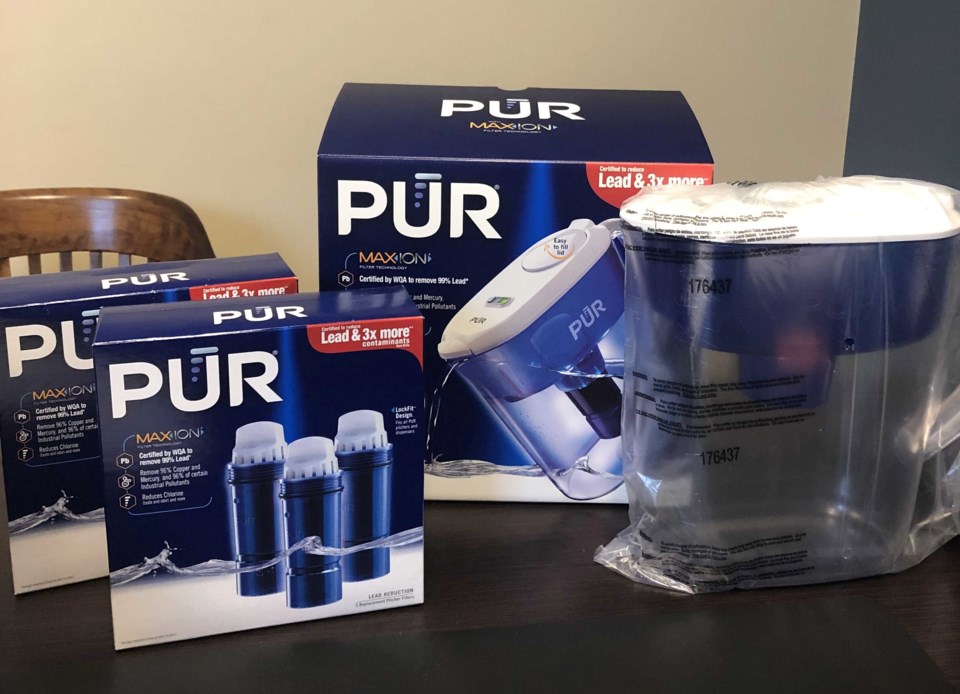THUNDER BAY — Those city residents who have been getting free water filters to remove lead from their tap water will continue to receive them for at least another year, and perhaps well beyond.
The budget for the filters this year is $600,000.
It's been exactly three years since the city first distributed water filters and pitchers to the over 8,500 residences that have lead water service connections.
The program has been described as an interim measure, but according to the new budget approved by city council this week, the city's environment division currently plans to supply the filters in 2024 and 2025 as well, at a cost of $600,000 annually.
Despite the fact the city anticipates providing filters for what would become a total of six years, the environment division is still calling the program "a short-term measure" to reduce lead levels at the tap.
"For the interim, we've planned ahead for the costs of supplying the water filters until a long-term strategy is approved by council," division director Michelle Warywoda said in reply to an inquiry from TBnewswatch.
She also said the removal of lead service connections across the city remains a key priority, a process the city has acknowledged will take "many years."
The city was already mandated by the Ontario government to have an approved corrosion control program in place to deal with lead leaching into tap water, but is now required to provide an updated plan.
Between 2018 and 2020, the plan included adding sodium hydroxide to the water distribution system to mitigate corrosion in lead pipes, but this was discontinued after reports surfaced about pinhole leaks developing in copper water lines around the city.
According to the provincial environment ministry, the city continues to evaluate alternative measures for chemical corrosion control, but this is a "long, complex, technical process."
Warywoda said the city is working with the ministry and with the Thunder Bay District Health Unit on evaluating "other means" of lead reduction options over the long term.
Details of the work have not been disclosed by the city, but a ministry spokesperson said the city "plans to re-evaluate water characteristics, including metal scans in the distribution system and residential plumbing."
He said it has also retained experts to investigate a suitable alternative corrosion control method to cut lead levels at the tap, and that timelines for any implementation will depend on the city's evaluation.
In addition to water filters, the city continues to fund a financial assistance program for homeowners wishing to replace their lead pipes and eliminate the need to use filters.
Warywoda said that as of last December, 73 applications for loans had been approved since June 2020.
She said the most up-to-date information on the city's efforts to deal with lead in tap water in many of the city's older homes remains available online.
City officials and members of council are being very cautious in discussing details or expressing opinions on what the city has done and plans to do to mitigate the release of lead in tap water.
The city is the target of a proposed $350 million class action lawsuit on behalf of homeowners who incurred expenses related to pinhole leaks in their copper water pipes.
No liability has been proven in court, and the lawsuit has yet to be certified as a class action, but a hearing for that is scheduled for Toronto in March.
A separate, unproven $350,000 damage claim against the city by St. Joseph's Care Group for pinhole leaks in pipes at PR Cook Apartments is still before the courts.
The city has denied negligence in the use of sodium hydroxide to combat lead corrosion.
